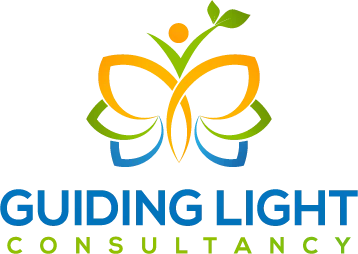I’ve been there and I carry not one, but four career-change T-shirts. I’ve even tried to emotionally bury the one bloodied with my rage. (But that’s a redundancy story, and I’ve learned to move on.)
In brief, I’ve had to restart my career four times in my life. In fact, when friends ask me what I’m doing now, I respond with, “I’m trying to decide what I’m going to when I grow up.”
I respond in that manner because I can recall my relatives pestering me with that unanswerable question when I was a child. Then vexingly, the advent and emphasis on the word, “career” arrived post-feminism.
When I was a child, women weren’t expected to have careers. Being a nurse, or stewardess, or teacher wasn’t necessarily considered a career. It was mainly a job, and hopefully, a pensionable, secure full-time occupation that fed your family and paid your bills throughout your lifetime. Although I didn’t become a teacher, I was encouraged to consider it because being a teacher was thought to be ideal, I was told — the profession allowed a woman the flexibility and scheduling advantages to still be a “good” mother.
Around the time Helen Reddy’s “I Am Woman” hit the airwaves (look it up on YouTube), I was expected to “find” my calling. Then came the verbiage of “following your dream” and “challenging yourself” was imprinted by the time I went off to university at 16. It was at university that the pressure hit me badly. I really (and truly) didn’t know what I wanted to do when I grew up.
Over the years, my choices were less career choices and more ones of expediency. When you have two children to clothe, feed, and educate, the pursuit of a career becomes a secondary consideration. But working within the localisation side of the IT industry meant contract work, re-organisations, and sometimes being at the mercy of the whims of senior management.
However, I found some consolation during those transitional career cycles: I was not alone. Career change was not a new phenomenon. I realised that there were many like me who have had to learn to roll with the career punches, adapt on brief notice, and cope with personal reinvention; particularly in the IT industry where employers sometime treat employees like disposable tissues.
So, whether you’re seeking a fresh challenge, greater fulfilment, or a whole new field, it’s important to know that you have the power to make it happen. With the right mindset, preparation, and some savvy social media strategies, you can generate a path to success and come to terms with what you want to do when you grow up.
From my own experience, here’s my humble suggestions for your roadmap to successful career change:
- Embrace Your “Why”
Before diving into the logistics, it’s essential to reconnect with your purpose. Why do you want to change careers? Is it to follow a passion, improve work-life balance, or explore new industries? Understanding your motivation will give you a clear direction and keep you focused when the process feels overwhelming.
Tip: Write down your “why” and refer to it when doubts creep in. It will afford you the ability to step back and take an arial view of your goals and ambitions. During discouraging moments, you will need this statement as a reminder to keep your eye on the prize.
- Assess Your Transferable Skills
Changing careers doesn’t mean starting from scratch. Take a moment to review the skills you’ve gained from previous roles because some of them are transferable in other positions. For example, project management, communication, problem-solving, digital marketing and leadership are valuable abilities in any industry.
Tip: Update your resume and LinkedIn profile to reflect these transferable and relevant soft skills. Emphasize how they apply to the new industry that you are targeting.
- Research and Network Interactively
Research is key when changing careers. Start by identifying industries that excite you and match your skill set. Look at job descriptions and note the qualifications and skills employers are seeking, as well as the LinkedIn profile of people holding similar roles in companies that you admire.
Don’t be shy, your next step is to reach out and network! Consider it opening conversations that will enable you to learn more about the role, the targeted companies, and your ability to fit into the company culture. Building relationships in your desired field can provide valuable insights and open doors to new opportunities.
Research the company before you engage with any connection. You need to be able to converse intelligently about the company history, mission, significant future, and senior management. Investigate if any of their targeted team or department members are attending conferences accessible to you. Plan to attend if the conference is affordable.
Tip: Join industry-specific LinkedIn groups, attend webinars, and connect with professionals in your target field. Don’t hesitate to ask for informational chats to learn more about potential paths.
- Use Social Media to Enhance Your Transition
Social media can be a powerful tool in your career change journey, helping you build your personal brand, showcase your expertise, and connect with the right people. Here are a few strategies:
Improve Your LinkedIn Profile
- Headline: Tailor your LinkedIn headline to reflect your desired career, not just your current or past position.
- Summary: Craft a compelling summary that outlines your career goals, transferable skills, and enthusiasm for the new industry. Be clear about what you’re seeking.
- Skills and Endorsements: Add relevant skills to your profile and seek endorsements from colleagues. Even if your experience is in another field, highlight skills that align with your new goals.
Showcase Thought Leadership
- Write and share posts about your learning journey in your new field. Be careful in what you share and ask for help from someone to check posts before publishing. Don’t be too eager to show your lack of experience, but carefully craft sound questions and research terms prior to leaping to conclusion or offering opinions. For example, share articles, write about trends in the industry, or offer insights from your transition experience. This shows your commitment and enthusiasm for your new career path.
Engage with Influencers and Groups
- Follow key influencers in your target industry and engage with their posts. Comment thoughtfully, ask questions, and share your perspective. This helps you get noticed while also learning from experts.
- Join relevant LinkedIn or Facebook groups and actively participate. Share resources, ask questions, and contribute to discussions. These groups can be a goldmine for job leads and advice.
- Seek Professional Guidance
Sometimes, navigating a career change can feel overwhelming, especially when you’re unsure of where to start. That’s where professional guidance comes in handy. Consider working with a career coach or mentor who can help you clarify your direction, sharpen your strategy, and build your confidence.
Tip: Many coaches specialize in career transitions, offering personalized guidance tailored to your goals. Don’t hesitate to invest in your future.
- Remain Persistent and Positive
Changing careers takes time, effort, resilience, and a dose of courage. There will be challenges along the way, but each step is a learning opportunity. Stay focused on your goals, keep refining your skills, and don’t give up. Remember, growth is uncomfortable. It’s like those first few visits to the gym after years of abstinence. You’ll have to make up your mind to keep going, ignore the sore muscles (or missteps), and by staying steadfast.
Tip: Celebrate small wins along the way—whether it’s landing an informational interview or updating your LinkedIn profile. These small achievements are the small steps that result in taking you across the finish line at the end of the race.
You’ve Got This! Career changes can feel like a trip to the dentist without the anaesthesia. It can be emotionally hard to pull off and full of mental dread. Trust in your abilities, drill into your network, and use social media to showcase your shiny strengths. Whether you’re pivoting into a completely new industry or expanding your skill set in a related field, your new career is potentially within reach.
The future is yours to create if you are strong and convicted enough to take the leap of faith!






